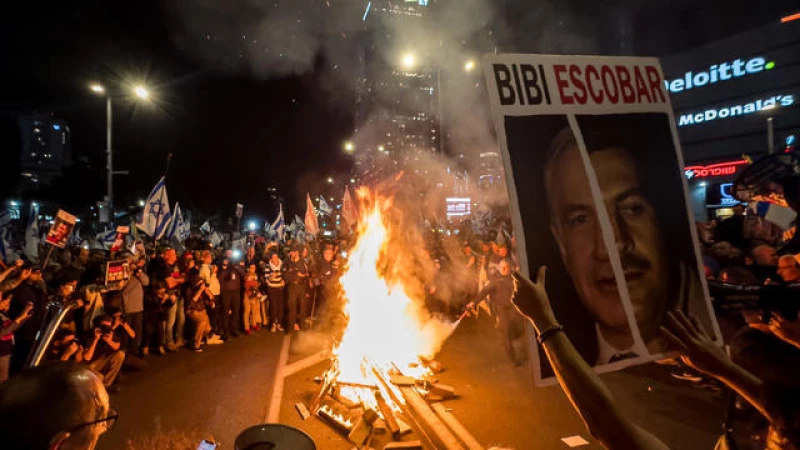Amidst ongoing discussions, there is a sense of hope surrounding the potential for a new cease-fire in the Gaza Strip. Both Israel and Hamas have reengaged in negotiations, considering a truce that would involve the release of more Israeli hostages in exchange for Palestinian prisoners.
CBS News chief foreign affairs correspondent Margaret Brennan reported that the Biden administration is aiming to use a possible six-week halt in violence as a stepping stone towards a longer-term peace agreement. The administration has been urging Israeli Prime Minister Benjamin Netanyahu to reconsider plans for a full-scale ground operation in the densely populated southern Gaza city of Rafah.
Israel's response to the conflict, ignited by Hamas' unprecedented terrorist attack on October 7th resulting in the deaths of approximately 1,200 individuals and the abduction of around 240 others in southern Israel, has strained relations between the U.S. and Netanyahu's government.
The European Union has joined in the criticism of Netanyahu, with the bloc's foreign policy chief Josep Borrell stating at a humanitarian conference that Gaza is no longer on the verge of famine, but rather in a state of famine that is impacting thousands of people.
Borrell emphasized that starvation is being weaponized in this conflict, accusing Israel of intentionally provoking famine.
Israeli Foreign minister Yisrael Katz responded with a social media post insisting that "Israel allows extensive humanitarian aid into Gaza by land, air, and sea for anyone willing to help."
Katz also reiterated an Israeli allegation that Hamas militants have been "violently disrupting aid convoys" — a charge U.S. officials said recently that they had no evidence to back up.
The Hamas-run Ministry of Health says more than 31,500 people have been killed in Gaza since the war started. It does not distinguish between civilian and combatant deaths, but with tens of thousands of people dying in Gaza from both the fighting and from hunger, some senior U.S. leaders appeared to lose their patience last week, and the tension between Israel and its closest ally only seemed to grow over the weekend.
Senate Majority Leader Chuck Schumer, America's highest-ranking Jewish elected official, stunned Israel late last week by calling for the country to hold new elections and saying Netanyahu had "lost his way."
The veteran Israeli politician fired back, telling Fox News over the weekend blasting Schumer's remarks as "wholly inappropriate."
"We're not a banana republic," Netanyahu protested. "The people of Israel will choose when they'll have elections, who they elect, and it's not something that will be foisted upon us."
The Biden administration, along with many other Western governments and international aid organizations, has repeatedly warned Israel against launching its promised full-scale offensive in Rafah. The city, a longtime Hamas stronghold on Gaza's southern border with Egypt, has over the last five months of war become a refuge to an estimated 1.5 million people, most of them displaced from elsewhere in the decimated Palestinian territory.
Despite the heavy international pressure against sending forces into the city, Netanyahu refused to back down over the weekend, at least publicly.
"We're within reach. We should do it. We're going to do it while we enable the civilian population in Rafah to leave, as we've done up to now," he told Fox News. "But we have to finish the job."
On Monday morning, meanwhile, in an ongoing operation, Israel said it had captured more than 80 fighters at Gaza's Al-Shifa hospital, which was the scene of fierce battles earlier in the war. Sources on the ground told CBS News that some 30,000 displaced people were sheltering at the hospital complex, plus dozens of patients and medical teams.
Harrowing images emerged from the scene of a purported Israeli strike near the hospital, with the body of a small child seen laying on the rubble of a destroyed building with dust still hanging in the air.
The toll of the conflict on civilians, coupled with the Israeli government's inability to secure the release of over 100 hostages still held in Gaza, has become unbearable for some Israelis. This sentiment was evident during a recent protest, where dozens took to the streets to express their frustration with the ongoing crisis and the administration's handling of the situation.
"This message is clear: 'Elections now,'" declared protester Ori Orman, holding up a sign. "I am of the opinion that following such a tragedy... even if one does not directly blame Benjamin Netanyahu, as the prime minister, I believe he should resign."
Despite this dissent, there are still many Israelis who continue to stand behind the military campaign against Hamas. However, a growing number are critical of Netanyahu's leadership and his management of the conflict. The events of October 7, including the tragic loss of life and abductions, occurred under his leadership, leading some to hold him accountable for the consequences.







